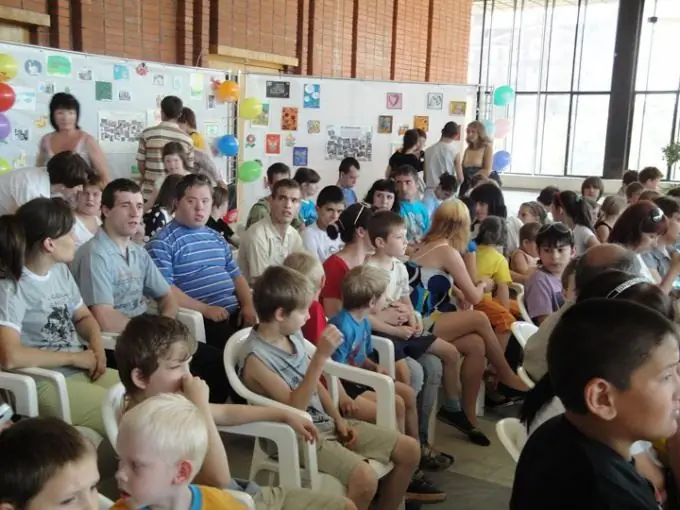- Author Horace Young young@householdfranchise.com.
- Public 2023-12-16 10:35.
- Last modified 2025-01-23 11:41.
When you first speak in front of an audience, most often you feel anxiety and worry about not forgetting anything. And if the listeners are children, then a lot of effort must be made to win their attention.

Instructions
Step 1
Many people had to speak: some do it every day due to the peculiarities of the profession, others are limited to one or two times. There are natural-born speakers who can always make a speech, a toast at the holidays, present the necessary information to a large number of people. For them, one more performance will not cause almost any emotion. Well, there is a category of people who know the topic perfectly, but when they go on stage, they even forget their name.
Step 2
Children's audience is more specific and complex, because children still do not know how to restrain their emotions and pretend. If they don't like your performance or get bored, you will see it immediately. Therefore, you need to prepare more thoroughly for them.
Step 3
The performances are different: it can be an ordinary congratulation on a holiday, and the disclosure of a complex topic in some area, and theatrical performances. In each of these cases, the approach is also different. The age of the listeners is also taken into account - for very little ones, you cannot use complex terms and dry facts, you need to add more examples and humor, and the speech itself should not be stretched for a long time, because they don't know how to listen to much yet. For teenagers, you can already be more serious, but trying to make all the information understandable and relevant to them, the right jokes will also not hurt.
Step 4
If you do not work with children, and only have to give some kind of solemn speech, then you can do without serious preparation. Your text should not contain very pompous and loud phrases, speak on the case in a clear, cheerful voice, you can try to involve the audience in your speech, tell a short interesting story on the topic. You shouldn't wish everyone good luck for half an hour without emotions, etc. - except for boredom it will not cause anything.
Step 5
If you need to convey some information to the children, tell about something, then the text of the speech must be prepared carefully. The basic rules are the same - speaking with emotions, interesting examples and stories. Any, even a complex topic, can be presented in such a way that it would be understandable to the majority. Children should be not just listeners, but participants in the performance, ask them questions, call them to the stage for clarity. The more they ask you, the more they become interested in you. But be prepared for the fact that not all questions will be standard, sometimes they can be confusing, do not go away from the answer, but try to come up with something worthy and humorous.
Step 6
If your performance is theatrical, i.e. you make some kind of a scene, organize a holiday, then it should be fun and easy. The age of the children should also be taken into account here. If kids are delighted with balloons, caps, costumed characters, then teenagers may simply not understand this - they need more relevant topics. The same applies to the contests that you will be holding there. Try to capture the mood of the audience and adapt to it.
Step 7
It is more difficult to perform with children, but it is very pleasant to see the excited happy faces of their listeners.






